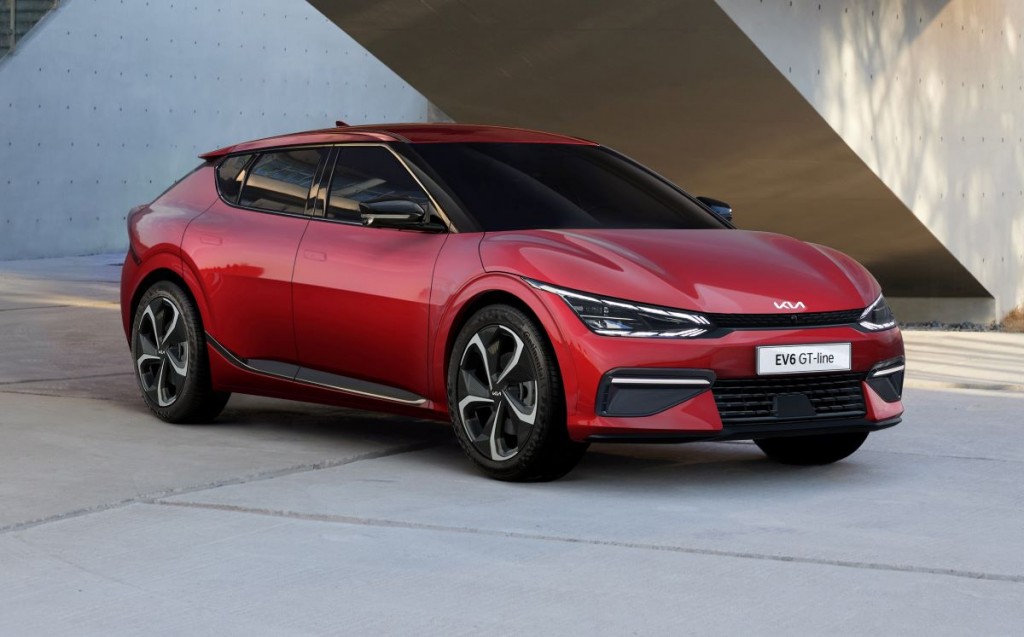EVs are less than 5% of Bermaz Auto's revenue
By THE STAR | 24 September 2022
PETALING JAYA: Bermaz Auto’s electric vehicle (EV) segment has contributed less than 5% to the group’s revenue and that is not going to change anytime soon.
Bermaz Auto chief executive officer Datuk Francis Lee Kok Chuan said adoption rate for EVs in the country is slow and although local sales have quadrupled, the figure is derived from a very low base of 100 to 200 units.
“It is difficult for EVs to take off in Malaysia given the automotive’s expensive pricing, short driving range and the lack of charging infrastructure in the country.
“Even with the support of the government in terms of tax incentives, EVs are still largely out of reach for many Malaysians.
“For us, out of the 300 units of Kia EV6 that we brought in, about two-thirds were sold. We have also sold about 15 units of the Mazda MX-30,” said Lee.
However, Bermaz Auto is unperturbed by its poor EV sales as the bulk of its revenue continues to come from convention combustion cars which are doing well despite bearish sentiments.
“For the next six to eight months, things should be good, seeing the backlog orders that we have,” said Lee.
He is optimistic of the quarters ahead as the profit growth in its latest quarter was high because of the low base from which the company came from. “The rise in profits should continue to be sustained in the coming quarters.
“This increase will be coming from a very low profit base that was due to the lockdowns during the Covid-19 pandemic last year,” he told StarBizWeek.
“We are still somewhat insulated from the brunt of inflation as the government has provided subsidies for basic necessities including petrol.
“There is talk among economists that interest rates may be coming down in the second half of next year which will augur well for the automotive industry,” he said.
Other catalysts include a high volume of backlog orders and new product launches.
Bermaz has about 10,000 unfulfilled orders that are mostly contributed by the sales and service tax (SST) exemption which was supposed to have ended on June 30, 2022, according to Lee.
While the weakening yen against the ringgit has aided Bermaz’s completely built up (CBU) car import business from the Philippines, the group is mostly an indirect beneficiary of this foreign exchange movement.
“We buy cars from Japan and Thailand using the yen.
“However, due to the global chip shortage and supply chain issues, we were not able to import any cars from these countries.
“Instead, we have been making purchases for CKD models from our associate, Mazda Malaysia Sdn Bhd, where we are billed in the ringgit.
“Mazda Malaysia buys CKD kits to be assembled in our Inokom plant in yen.
“Therefore the weakening yen benefits them.
“Nevertheless, this will allow Mazda Malaysia to continue to invest in our manufacturing plant and we benefit in this way. It is also a good thing that we are not exposed to the volatility of the yen,” he said.
The ongoing semiconductor shortage and supply chain disruptions have also affected the group’s production capacity.
“Our plant is operating slightly below its capacity due to the headwinds. But we project that when new CKD kits are made available in the coming months, our production will ramp up,” said Lee.
He said demand for cars is good.
“There will always be people who want to buy cars every month, attributable to new graduates going into the workforce, coupled with the car replacement cycle of every four to five years.
“Hence, the average volume of cars manufactured in the industry can hover around 45,000 to 50,000 units a month, and 550,000 to 600,000 units a year,” he added.
Tags
Autos Mazda
Reviews

First drive with the 2025 Hyundai Tuscon and Santa Fe: Seoul...

5.8
Kymco AK550 Premium: Smart easy rider

BYD Seal 6 Premium: Sweet deal, generous kit, sensible prici...

8.7
Mazda CX-80 2.5G PHEV AWD High Plus: Upmarket upgrade

Proton X50 Flagship: Tuned for success

6.6
Triumph Trident 660: Beautifully balanced package

8.4
Mercedes-AMG GLA 35 4Matic: Never a dull moment

Lamborghini Urus SE: Ultimate control
Videos

Free & Easy Media Test: Latest Proton X50 Flagship to Kuanta...

Zeekr Space Sunway City Video

Honda Civic Type R Ultimate Edition: Last 40 Units for Europ...
